Chinese Vocabulary - 2017 Double Ninth Festival
Posted by Vikki Lv 3709
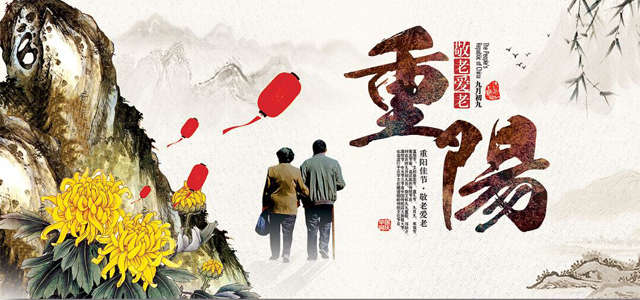
chónɡ yánɡ jié
重阳节:Double Ninth Festival
Double Ninth Festival is just like its name, which will be held on the ninth of September in Chinese Lunar Calendar. And this year in 2017, Double Ninth Festival will be celebrated on 28th October in golden autumn. Dating from Chinese Warring States Times, Double Ninth Festival became a Chinese traditional Festival with hosting the grand weight of Chinese tradition and Chinese culture. Chinese people usually hold lots of activities or events to celebrate such a nice day.
There is a Chinese masterpiece named The Book of Changes, which mentioned that “阳”(yáng) refer to the sun, the brightness and the positivity. And it mentioned that “九(jiǔ)” is a “阳数”(positive number) so that the ninth day of September will be the double ninth, which will spread double positivity and brightness to people. Thus Double Ninth Day has been celebrated and welcomed among Chinese people from old days till now.
It’s a festival for Chinese people to express their respect to the elderly and will also take some short trips in such a grand festival with some activities. Would you like to know them? Let’s have a look.
1. Here we presented some basic phrases for Double Ninth Festival.
shǎnɡ qiū
赏秋:Enjoy the autumn
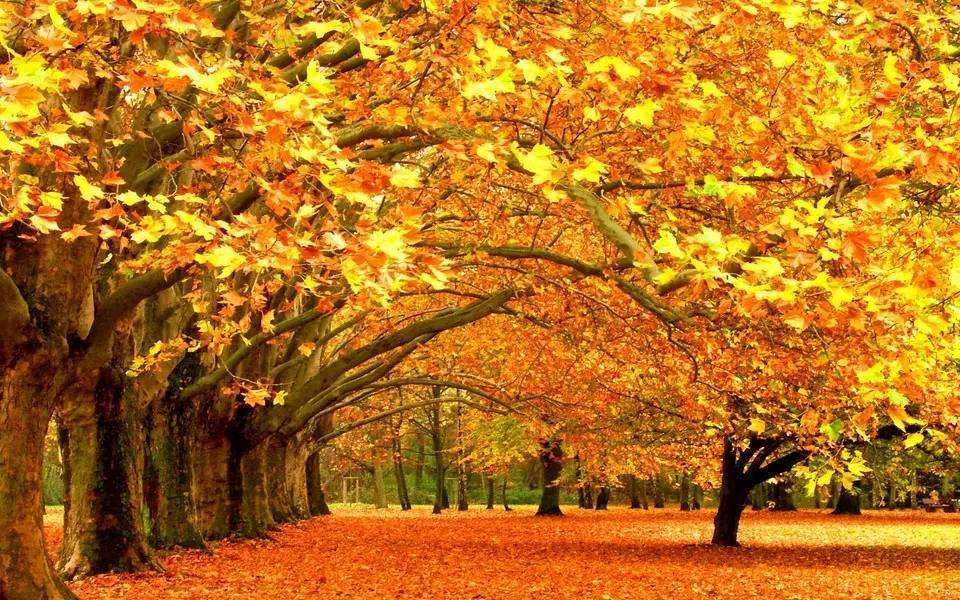
Because Double Nine Festival usually comes in late autumn, when the tree turned yellow, the grand covered with fallen leaves. Chinese people would like to go out with families or friends to appreciate the fascinating scenery of autumn.
shǎnɡ jú
赏菊:Enjoy chrysanthemum
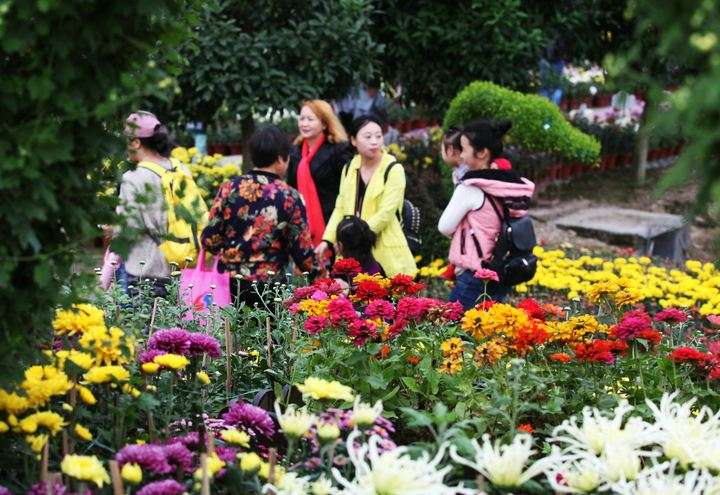
The chrysanthemum always flourishes in the late autumn. And the majority of Chinese people have a deep mind to appreciate flowers who will appreciate different kinds of lowers in a whole year. So in autumn, we will go out to enjoy the amazing scenery of flourishing chrysanthemum.
dēnɡ ɡāo
登高:Climbing
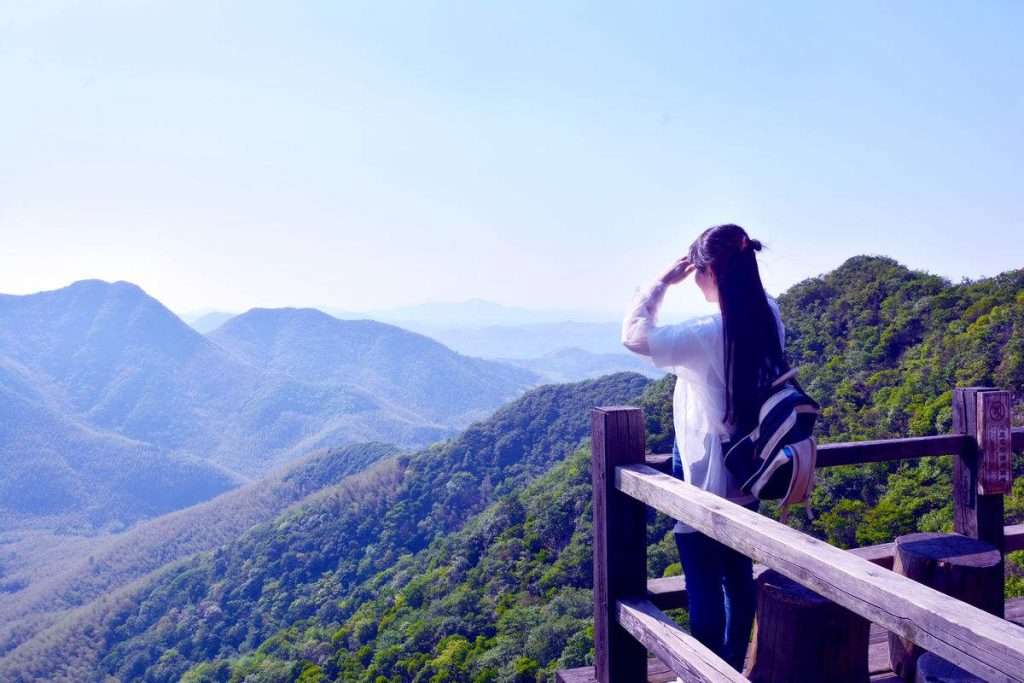
The sky is high and the weather is fine in autumn, especially on the top the mountain, where people will breathe fresh air and appreciate the amazing scenery with a bird’s-eye view. That’s why Chinese people would like to do climbing on the Double Ninth Festival.
chī chónɡ yánɡ ɡāo
吃重阳糕:Eat Double Ninth Cake
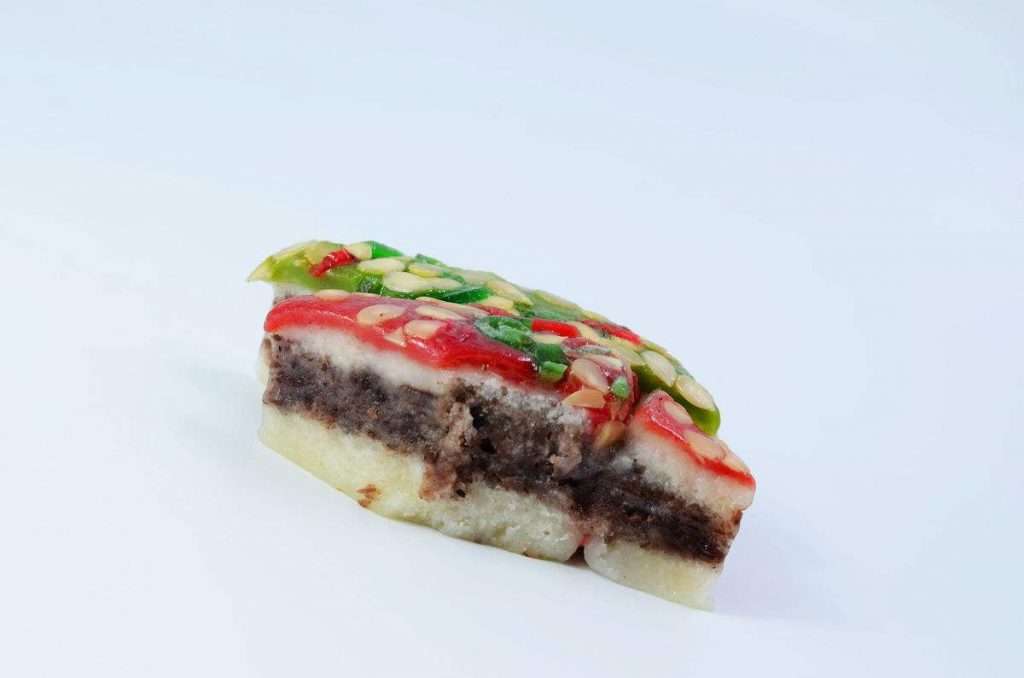
Double Ninth Cake is popular in some Chinese provinces near coastlines, which aims to celebrate the autumn harvest. And people make this kind of cake to hope better lives in the coming year.
yǐn jú huā jiǔ
饮菊花酒:Drink Chrysanthemum wine
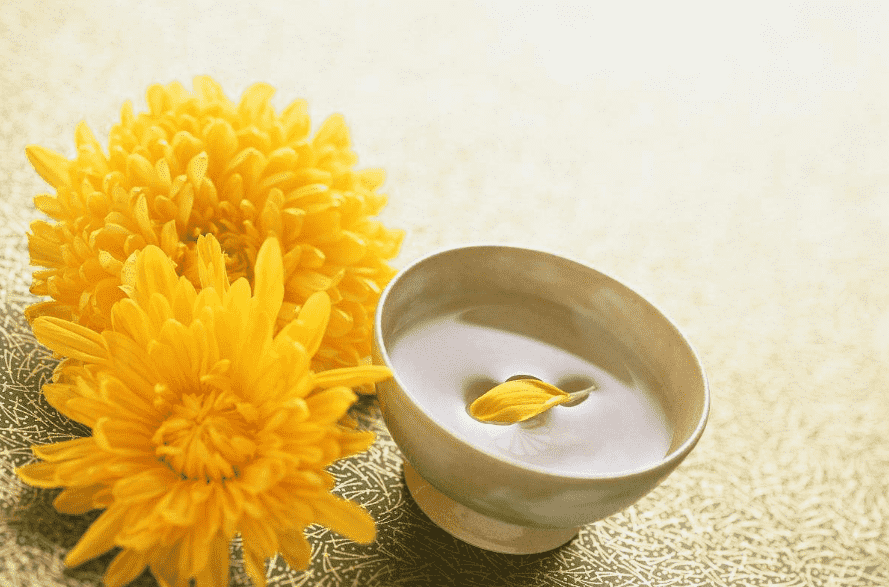
Chinese people like to brew Chrysanthemum wine before the festival in ancient times, which was regard as the propitious liquor to dispel the disaster. But nowadays most of us will buy the wine in markets.
chā zhū yú/pèi zhū yú
插茱萸/佩茱萸:Wearing dogwood
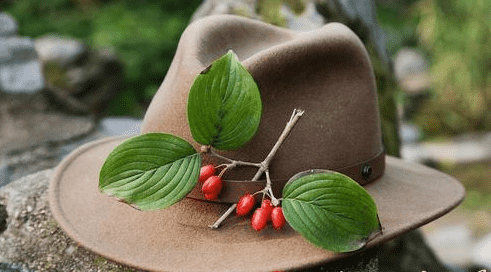
The dogwood is a kind of verbal drug in Chinese medicine, which can be used to expel insects and get rid of the humidity. And it also helps digestion and cure inner heat. Thus, Chinese people would wear cornel as a best wish.
2. Here we presented some expressions about Double Ninth Festival wishes.
jiǔ jiǔ chónɡ yánɡ, zhù nǐ kāi xīn jiǔ jiǔ, tián mì jiǔ jiǔ, xìnɡ fú jiǔ jiǔ!
九九重阳,祝你开心久久,甜蜜久久,幸福久久!
(Double ninth, hope you delighted, happy and sweet for long time!)
Here “久” is pronounced the same with “九”, so we always use the homophonic to express the wishes.
yòu shì yì nián chónɡ yánɡ, ɡāo tánɡ zài shànɡ, shēn tǐ ān kānɡ, jì dé jiā yī shɑnɡ, tiān zhuǎn hán!
又是一年重阳,高堂在上,身体安康,记得加衣裳,天转寒!
(Double Ninth Festival again, I hope my parents well-being, keep in mind to get warm clothes for weather turning cold.)
Here “高堂” is a written word referring to the parents. On Double Ninth Festival, people will also show their missing and regards to families.
jīn rì jiǔ yuè jiǔ, wèn hòu shí shí yǒu, zhù fú yǒnɡ bù xiū, ɡǎn zǒu yōu yǔ chóu zhù nǐ chónɡ yánɡ kuài lè!
今日九月九,问候时时有,祝福永不休,赶走忧与愁! 祝你重阳快乐!
(Today is Double Ninth. The greeting is always accompanied; the blessing is never stopped; worries will never appear! Wish you happy in Double Ninth Day!)
3. Here we presented a famous Chinese poem about Double Ninth Festival.
九月九日忆山东兄弟 By 王维
(On the Mountain Holiday Thinking of My Brothers in Shandong)
dú zài yì xiānɡ wéi yì kè, měi fénɡ jiā jié bèi sī qīn。
独在异乡为异客 ,每逢佳节倍思亲。
(All alone in a foreign land, I am twice as homesick on this day.)
yáo zhī xiōnɡ di dēnɡ ɡāo chù, biàn chā zhū yú shǎo yì rén。
遥知兄弟登高处 ,遍插茱萸少一人。
(When brothers carry dogwood up the mountain. Each of them a branch--and my branch missing.)
——Translated by Witter Bynner
Would you like to learn more about Chinese festivals and Chinese culture? Welcome to book a free trial lesson and let our teachers help in your Chinese right now!










